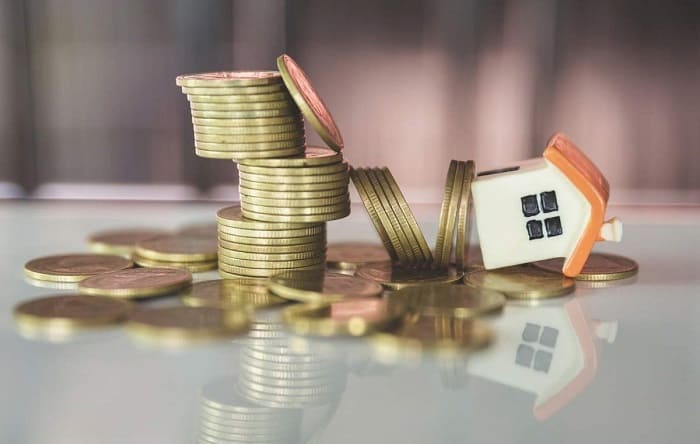At times circumstances become difficult and we are not able to meet our financial liabilities, especially in a situation like COVID-19. To avoid payment defaults by loan borrowers, the Reserve Bank of India has given a six months moratorium for all term loans, but the uncertainty is when this situation will become normal. Pay cuts and job losses also pose a risk of borrowers defaulting on loan repayments.
What is a Home Loan Default?
Such conditions are called a loan defaulting when a borrower fails to keep his legal agreement with the lender regarding the loan. The loan agreement says that the borrower will pay a fixed amount of money to the lender every month. If a borrower stops paying his EMIs, he/she is called a loan defaulter.
What happens when you cannot repay your Home Loan?
What are the consequences of default on home loan and what are the options available to you in such a situation.
1. Impact on Credit Score
When you default on repayment of your loan, the first thing to be impacted is your credit score. Without a favourable credit score, it is difficult to borrow money from any lending institution in future. Also, since your property is mortgaged to the lender, they can repossess the property and auction it as well.
Since as per the provisions of Credit Information Companies (Regulation) Act, 2005 all the financial institutions are required to report the transactions of credit including default to the Credit Information Bureau like CIBIL, your default on the home loan also gets reported. This adversely impacts your credit history and credit score. This adverse impact due to default on your home loan, will adversely impact your ability to avail any credit facility from the financial system, whether in the form of credit card or home loan.
2. Implications of failure to pay the EMI
As per the RBI guidelines in case the home loan EMI is not paid for more than 90 days, the entire home loan becomes a non-performing asset and the bank may ask you to repay the whole of the home loan amount outstanding. It is only continuous failure to pay your EMI, which constitutes a default. Home loan default consequences are not so severe and mere isolated cases of a default in payment of an installment are not taken seriously.
3. How should you deal with it?
Since the banks have been authorized to take possession of the house legally, it is advisable for you not to confront the lender or its representative. On the contrary, you should be cordial with the representative. Your cordial approach will make the representative have sympathetic view of your situation and may most probably come to your help as the bank is also interested in finding a viable solution to avoid litigation or hassle of having to go through the process of seizing and selling the property.
Options that can help you repay your Home Loan EMIs
1. Use of Emergency Fund
Lack of income is the biggest obstacle to your home loan repayment. You may face this problem if you lose your job or other sources of income savings dry up. Therefore, it’s advisable to maintain an emergency fund by either keeping the amount in a savings account or in some debt instrument such as fixed deposits.
2. Disposing of the property yourself
If you feel that no viable alternative is workable for you but to dispose of the property, please discuss the matter with the bank officials and arrange for sale of the property yourself rather than getting it sold by the bank so as to ensure that you get the maximum price possible. In case after discharging the bank liability, you are still left with a reasonably good amount, you can think of moving into a smaller house or to a house in a sub-urban locality in case your present house is in prime locality so you can buy the property at a relatively cheaper price
3. Contact your lender and find a solution
When your inability to pay EMIs is due to a genuine reason such as loss of employment, a serious medical condition, or short-term difficulty, you can discuss the matter with your lender. You can try to persuade your lender to understand your difficulties and convince them that you can resume your loan re-payments soon. These options include:
a) Grace period:
A brief moratorium on re-payments of loan can be given to you by the lender, that is, a short time period during which you do not need to pay your EMIs to enable you to recover yourself from your short-term difficulty and re-start re-paying the home loan.
b) Refinancing/Restructuring of loan:
Restructuring of your loan- where the lender can increase the loan tenure and reduce your EMI amount. Subject to your age and eligibility, you may ask the home loan provider (lender) to reset your EMI by opting for longer loan tenure.
c) Interest rate reduction:
A lower interest rate may be offered to you with certain terms and conditions. Gupta said that a lender can reduce the rate of interest on your loan provided such rate is non-discriminatory and is as per the published rate grid. However, case-specific interest rate reduction to level below the rate grid are neither permissible nor customary, except in case of a settlement in which case the home loan account would be classified as a ‘settled’ or ‘written off’ (partially or fully) account.
4. Liquidating your Investments
In case you are facing the problem of regular cash inflow but have sufficient investments in bank fixed deposits, mutual funds and equity, you can evaluate the option of liquidating the investments and pay off the banks and save your dream house going out of your hand.

